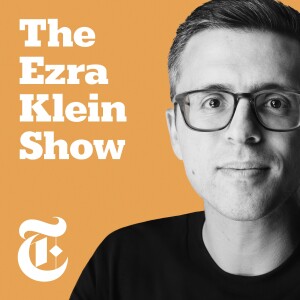
Do we actually know how much good our charitable donations do?
This is the question that jump-started Holden Karnofsky’s current career. He was working at a hedge fund and wanted to figure out how to give his money away with the certainty that it would save as many lives as possible. But he couldn’t find a service that would help him do that, so he and his co-worker Elie Hassenfeld decided to quit their jobs to build one. The result was GiveWell, a nonprofit that measures the effectiveness of different charities and recommends the ones it is most confident can save lives with the least cost. Things like providing bed nets to prevent malaria and treatments to deworm schoolchildren in low-income countries.
But in recent years, Karnofsky has taken a different approach. He is currently the co-C.E.O. of Open Philanthropy, which operates under the same basic principle — how can we do the most good possible? — but with a very different theory of how to do so. Open Phil’s areas of funding range from farm animal welfare campaigns and criminal justice reform to pandemic preparedness and A.I. safety. And Karnofsky has recently written a series of blog posts centered around the idea that, ethically speaking, we’re living through the most important century in human history: The decisions we make in the coming decades about transformational technologies will determine the fate of trillions of future humans.
In all of this, Karnofsky represents the twin poles of a movement that’s come to deeply influence my thinking: effective altruism. The hallmark of that approach is following fundamental questions about how to do good through to their conclusions, no matter how simple or fantastical the answers. And so this is a conversation, at a meta-level, about how to think like an effective altruist. Along the way, we discuss everything from climate change to animal welfare to evaluating charities to artificial intelligence to the hard limits of economic growth to trying to view the world as if you were a billion years old.
You probably won’t agree with every prediction in here, but that is, in a way, the point: We live in a weird world that’s only getting weirder, and we need to be able to entertain both the obvious and the outlandish implications. What Karnofksy’s career reveals is how hard that is to actually do.
Mentioned:
The "Most Important Century" Blog Post Series on Holden Karnofsky’s blog, Cold Takes
GiveWell
More on Open Philanthropy’s approach to worldview diversification
“What Charity Navigator Gets Wrong About Effective Altruism” by William MacAskill
“The Past and Future of Economic Growth: A Semi-Endogenous Perspective” by Charles I. Jones
Book recommendations:
Due Diligence by David Roodman
The Lifeways of Hunter-Gatherers by Robert L. Kelly
The Precipice by Toby Ord
You can find transcripts (posted midday) and more episodes of "The Ezra Klein Show" at nytimes.com/ezra-klein-podcast, and you can find Ezra on Twitter @ezraklein. Book recommendations from our guests are listed at https://www.nytimes.com/article/ezra-klein-show-book-recs.
Thoughts? Guest suggestions? Email us at ezrakleinshow@nytimes.com.
“The Ezra Klein Show” is produced by Annie Galvin, Jeff Geld and Rogé Karma; fact-checking by Michelle Harris; original music by Isaac Jones; mixing by Jeff Geld, audience strategy by Shannon Busta. Special thanks to Kristin Lin.
Unlock full access to New York Times podcasts and explore everything from politics to pop culture. Subscribe today at nytimes.com/podcasts or on Apple Podcasts and Spotify.
More Episodes
 2024-06-30
2024-06-30
 2024-06-14
2024-06-14
 2024-05-31
2024-05-31
 2024-05-07
2024-05-07
 2024-04-30
2024-04-30
 2024-04-26
2024-04-26
 2024-04-23
2024-04-23
 2024-04-12
2024-04-12
 2024-04-05
2024-04-05
 2024-04-02
2024-04-02
Create your
podcast in
minutes
- Full-featured podcast site
- Unlimited storage and bandwidth
- Comprehensive podcast stats
- Distribute to Apple Podcasts, Spotify, and more
- Make money with your podcast
It is Free
- Privacy Policy
- Cookie Policy
- Terms of Use
- Consent Preferences
- Copyright © 2015-2024 Podbean.com





